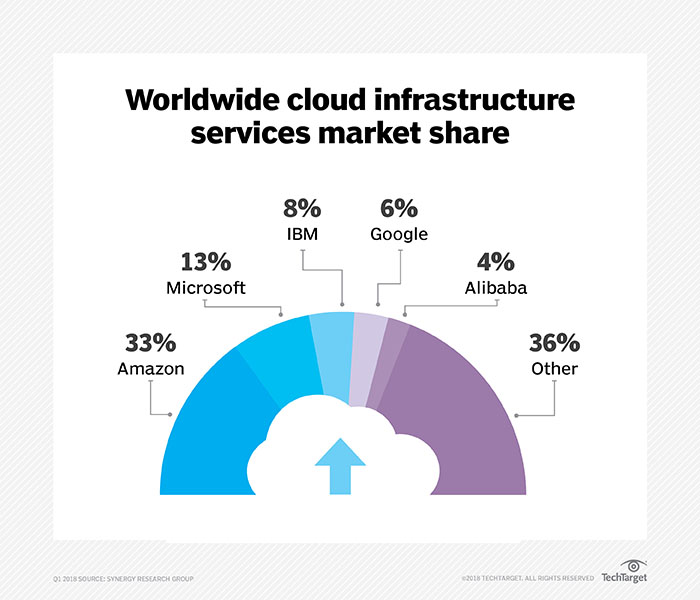Cloud Service Provider (Cloud Provider)
A cloud service provider, or CSP, is a company that offers some component of cloud computing — typically infrastructure as a service (IaaS), software as a service (SaaS) or platform as a service (PaaS) — to other businesses or individuals.
Types of cloud service providers
Customers will purchase an increasing variety of services from cloud service providers today. As mentioned above, the most common categories of cloud-based services include IaaS, SaaS and PaaS.
IaaS providers. In the IaaS model, the cloud service provider delivers infrastructure components that would otherwise exist in an on-premises data center. These components could consist of servers, storage and networking as well as the virtualization layer, which the IaaS provider hosts in its own data center. Cloud service providers may also complement their IaaS products with services such as monitoring, security, load balancing and storage resiliency.
SaaS providers. SaaS vendors currently offer a wide array of business technologies, such as productivity suites, customer relationship management (CRM) software and human resources management (HRM) software, all of which the SaaS vendor hosts and provides over the internet. Many traditional software vendors now sell cloud-based options of their on-premises software products.
PaaS providers. The third type of cloud service provider, PaaS vendors, offers cloud infrastructure and services that users can access to perform various functions. PaaS products are commonly used in software development. In comparison to an IaaS provider, PaaS providers will add more of the application stack, such as operating systems and middleware, to the underlying infrastructure.
Cloud providers are also categorized by whether they deliver public cloud, private cloud or hybrid cloud services.
Common characteristics and services
In general, cloud service providers make their offerings available as an on-demand, self-provisioning purchase. Additionally, customers can pay for the cloud-based services on a subscription basis — for example, under a monthly or quarterly billing structure.
Some cloud service providers have differentiated themselves by tailoring their offerings to a vertical market’s requirements. Their cloud-based services might seek to deliver industry-specific functionality or help users meet certain regulatory requirements. For instance, several healthcare cloud products have been released that let healthcare providers store, maintain and back up personal health information.
Major cloud service providers
The cloud services market presents a range of providers, but three public cloud companies have established themselves as dominant forces: Amazon Web Services (AWS), Microsoft and Google.

Other major cloud providers include Apple, Citrix, IBM, Joyent, Rackspace and Salesforce.
How to vet a cloud service provider
There are a number of things to think about when customers evaluate cloud service providers. The cost will usually be based on a per-use utility model, but there are a number of variations to consider. The physical location of the servers may also be a factor for sensitive data.
Reliability is crucial if customers’ data must be accessible. A typical cloud storage provider’s service-level agreement (SLA), for example, specifies precise levels of service — such as, 99.9% uptime — and the recourse or compensation that the user is entitled to should the provider fail to provide the service as described. However, it’s important to understand the fine print in SLAs because some providers discount outages of less than 10 minutes, which may be too long for some businesses.
Security is another important consideration. Organizations such as the Cloud Security Alliance (CSA) offer certification to cloud providers that meet its criteria. The CSA’s Trusted Cloud Initiative program was created to help cloud service providers develop industry-recommended, secure and interoperable identity, access and compliance management configurations and practices.